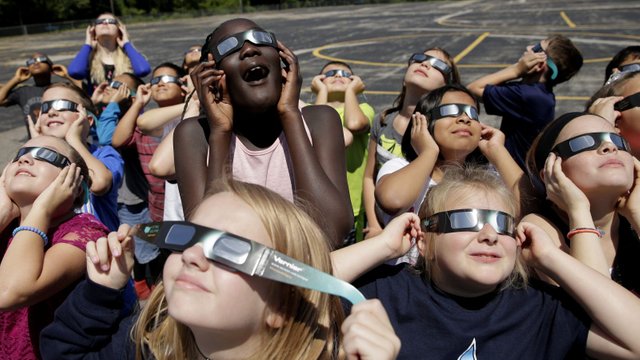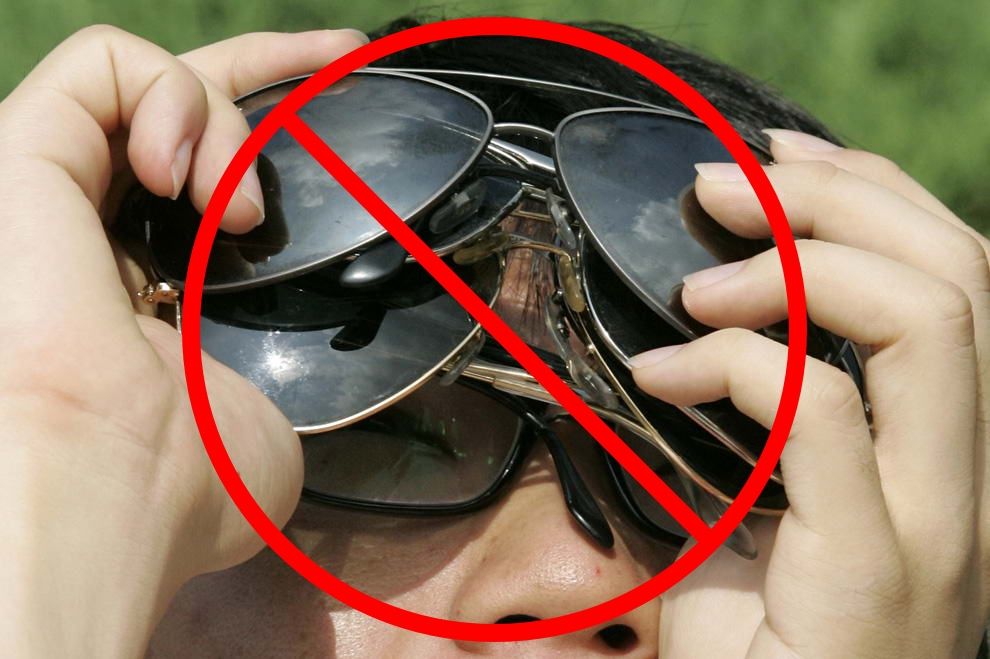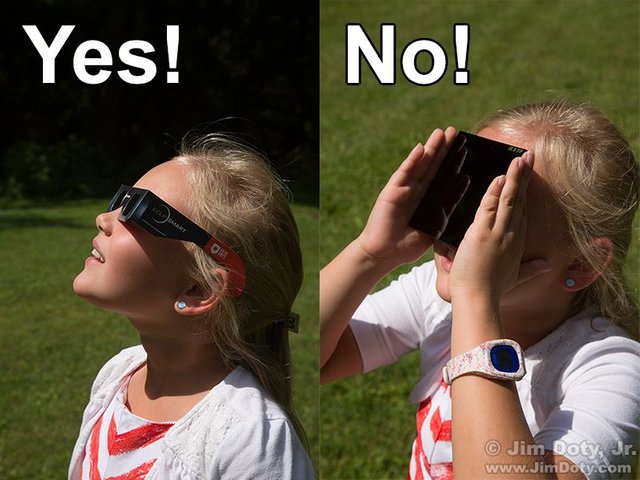
In 1962, a teenager in Oregon named Lou Tomososki and a friend both made the mistake of looking directly at a partial solar eclipse without any protective eyewear. Tomososki saw bursts of light, like those from a flashbulb. His vision in his right eye never recovered. “You know how the news people blur a license plate out,” he recently told NBC News. “That’s what I have on the right eye, about the size of a pea. I can’t see around that.”
A complete solar eclipse is said to be so awe-inspiring that people who experience one become addicts. On Monday (Aug. 21), a wide swath of the US will get to view such an event.
For those in the path of “totality,” when the moon completely blocks the sun’s face and reveals its corona, it will be safe for a few minutes to look directly at the eclipse with your naked eyes, according to NASA. But most of the US isn’t in that path. For all those people, to look even for a moment without certified protective eyewear can cause permanent damage.
In an Aug. 18 article for JAMA Ophthalmology, two eye experts explained what actually happens to your eye if you look at an eclipse. There are two types of damage sunlight can inflict. One is “direct thermal injury,” caused by near-infrared radiation, meaning the light can literally burn your eye. Because you can’t see that type of light, and because your retina—the light-sensitive tissue lining inside your eye—doesn’t have pain receptors, the damage can occur without you even knowing it.
But the more concerning sort of damage is called photochemical toxicity, and it results from the light you can see. As that light passes through the eye, the normal chemical processes within the eye generate free radicals and what are called reactive oxygen species. In excess, as happens when your eye gets hit with a direct shot of sunlight, those atoms can destroy your retinal tissue. The article’s authors cite a 1999 study of eclipse burns from the UK that photochemical toxicity was the more frequent cause of sun-induced retina damage, known as “solar retinopathy.”
As it happens, young adults—perhaps especially young males—are those most likely to suffer these eye injuries from the eclipse. “Although a clearer lens [in the eye] that is more permissive to transmitting visible light may contribute to this finding, a more likely explanation may be simple misunderstanding of the danger of viewing an eclipse without proper protection or misuse of that protection,” the authors write.

Those who want to watch the 2017 eclipse, or photograph it, need to make sure they take the proper precautions. Looking through a telescope, binoculars, or a camera lens without the right eyewear isn’t safe either. The event will only last a few minutes, but the damage it can cause could last a lifetime.
Authors get paid when people like you upvote their post.
If you enjoyed what you read here, create your account today and start earning FREE STEEM!
If you enjoyed what you read here, create your account today and start earning FREE STEEM!
Hi! I am a robot. I just upvoted you! I found similar content that readers might be interested in:
http://www.today-search.com/2017/08/19/what-will-happen-if-you-look-at-the-solar-eclipse-without-glasses-quartz/
Downvoting a post can decrease pending rewards and make it less visible. Common reasons:
Submit
Congratulations @klajdi55! You have completed some achievement on Steemit and have been rewarded with new badge(s) :
Click on any badge to view your own Board of Honor on SteemitBoard.
For more information about SteemitBoard, click here
If you no longer want to receive notifications, reply to this comment with the word
STOPDownvoting a post can decrease pending rewards and make it less visible. Common reasons:
Submit